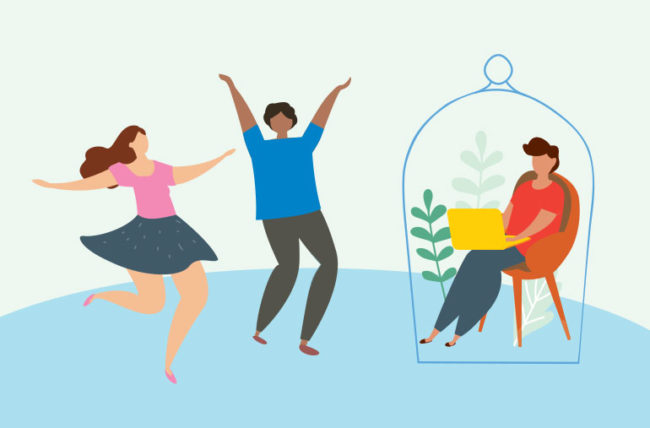Are you unaware of undisclosed aspects of your personality and face different kinds of problems to react appropriately during a social gathering or personal meeting? There are basically two different types of people in the world. One, who speaks a lot and prefers getting attention. Second, those who prefer speaking less and like talking only with selected people. Experts characterized people as extroverts and introverts. Let us discuss both these personality dimensions in detail.
What is an Extrovert?
Extroverts are those who possess an expressive pattern of behavior and social interaction. They are supposed to be gregarious, assertive, warm, active and excitement-seeking in nature. They easily make friends and are often described as action-oriented and enthusiastic. These people are also considered as attention-seekers. Studies also have found they are easy to distract and always find it difficult to spend time alone. Their risk-taking behaviors usually land them in difficult situations.
A. Biological Reasons: Extrovert nature of a person is also said to be associated with both cortical arousal and the dopaminergic system. Lower levels of cortical arousal and lower dopaminergic responsiveness found in extroverts are evaluated to describe their excessive need for activity and excitement. The extraversion aspect of an extrovert person is largely connected to a wide range of human behaviors including academic achievements, official performance, risk taking tendencies, and others.
B. Psychological Traits: Extroverts comprehend some psychological traits as well which benefit them more than other activities. Few of them are as follows:
- Gain energy by talking to others
- Maintain a wide social network
- Prefer team work instead of individual efforts
- Like enjoying outside home
- Possess great desire to participate in social events
Benefits of being an Extrovert:
The most beneficial aspect of being an extrovert is you are less prone to develop certain psychological disorders.
On the contrary, extraversion also becomes a possible factor to cause impulsivity, overconfidence, recklessness and other problem-causing habits.
What is an Introvert?
An introvert person considers internal feelings over external sources of stimulation. Being an introvert does not mean that you do not want to socialize with people around or become anxious in the presence of other people. It is just about being in a circle of limited people.
A. Biological Reasons: Introverts receive higher blood flow at the frontal lobe in comparison with extroverts. This area in the brain is responsible for helping people remember things, find solutions to problems and plan. Introvert and extrovert brains react differently to dopamine (a chemical that turns on while receiving an award or drawing pleasure from something).
B. Psychological Traits: Introverts prefer not to spend lots of time talking with people. They generally choose to be around people with whom they are associated that too for meaningful conversations.
Both personality dimensions have their own characteristics. Think before you assume the next time you interact with someone who behaves or functions differently from you; everyone has their own style of doing things.



